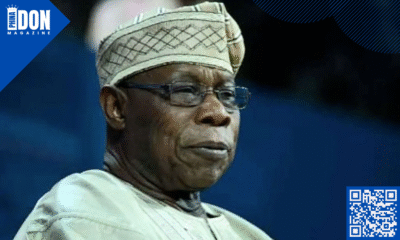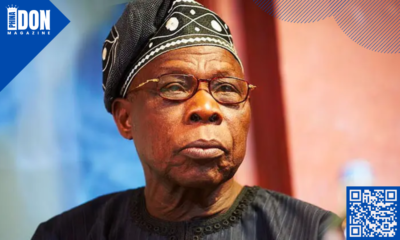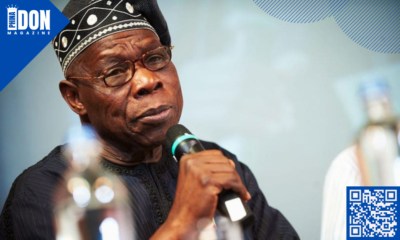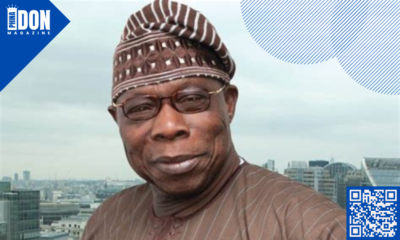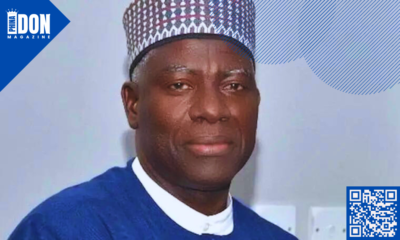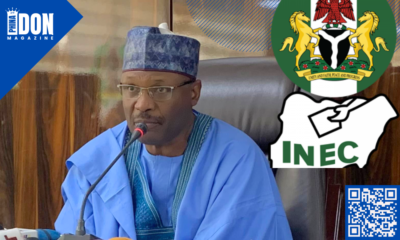News
Leadership Deficit: A Stagnant Nigeria’s Greatest Challenge – Obasanjo
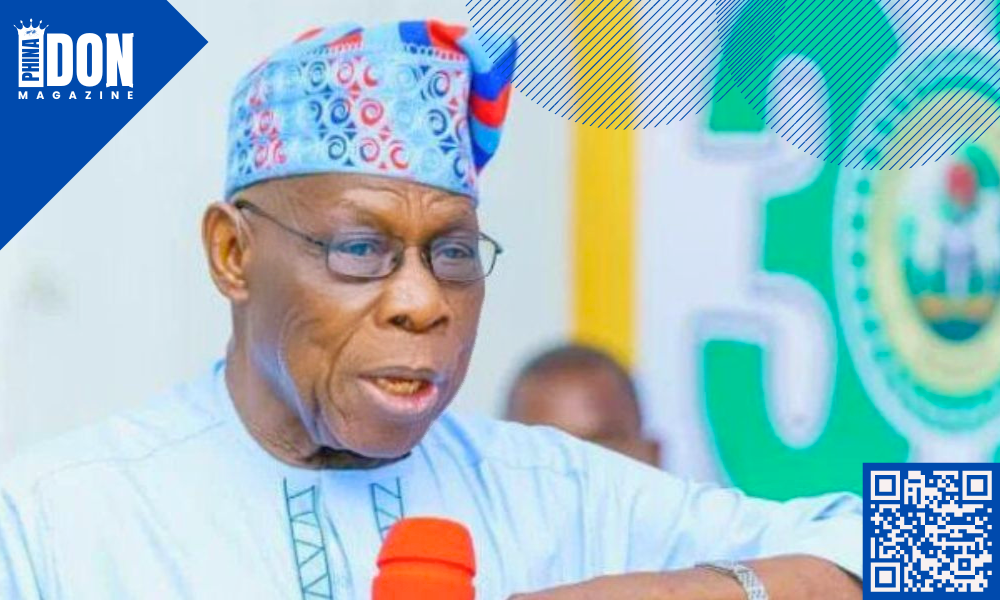
In a recent address at the Leadership Empowerment International Conference in Abeokuta, former President Olusegun Obasanjo articulated a pressing concern regarding Nigeria’s socioeconomic and political stagnation. He attributed this inertia to a significant leadership deficit, emphasizing that the nation’s progress hinges on the departure of “self-centred” leaders currently occupying pivotal positions in governance.
Obasanjo’s remarks came during an event where 25 distinguished Nigerians were conferred honorary Doctorates in leadership by the Immanuel Theology Institute International, in collaboration with the Priesthood Leadership Development Initiative Inc. The former president underscored the necessity of transformative leadership, which prioritizes service over self-interest. He lamented the prevalence of leaders who, in his view, lack the requisite knowledge and understanding to foster meaningful development.
The essence of Obasanjo’s message is clear: effective leadership is fundamental to addressing Nigeria’s myriad challenges. He urged citizens to actively pursue leaders who embody transformational qualities, thereby rejecting the transactional leadership that has historically hindered the nation’s advancement.
Furthermore, he commended the efforts of Prof. Olusesi Obateye and Prof. Van Den Berg Edward Alfred for their roles in recognizing and nurturing leadership potential among Nigerians. Their commitment to promoting responsible and responsive leadership is crucial in a country that has grappled with underdevelopment for nearly six decades since gaining independence.
In conclusion, Obasanjo’s call to action resonates with the urgent need for a paradigm shift in Nigeria’s leadership landscape. As the country navigates its path forward, the cultivation of leaders who prioritize the common good over personal gain will be essential for achieving sustainable progress.
Foreign
UK Deploys Military Assets to Middle East Amidst Escalating Iran-Israel Conflict.

In response to the escalating conflict between Iran and Israel, the United Kingdom is deploying fighter jets and other military assets to the Middle East. Prime Minister Keir Starmer announced the deployment, stating it is for “contingency support.”
The Prime Minister has engaged in discussions with both US President Donald Trump and Israeli Prime Minister Benjamin Netanyahu, emphasizing the need for de-escalation. Foreign Secretary David Lammy has also communicated with Iranian officials, urging restraint and emphasizing the importance of protecting civilians.
The UK’s actions reflect a commitment to regional stability and a concerted effort to prevent further escalation of the conflict. Ongoing discussions with allies aim to de-escalate the situation and promote a peaceful resolution.
Foreign
A person who attacked and killed a Nigerian schoolboy with a sword in the UK has been sentenced to life in prison.

Marcus Monzo, a 37-year-old of Spanish-Brazilian descent, has been sentenced to life imprisonment with a minimum term of 40 years for the murder of 14-year-old Daniel Anjorin in Hainault, northeast London. The sentencing follows Monzo’s conviction for the unprovoked and brutal attack on Daniel, as well as attacks on other members of the public and police officers, in April of last year.
The court heard how Monzo, under the influence of cannabis-induced psychosis, initiated a violent rampage, culminating in the near-decapitation of Daniel Anjorin as the young boy walked to school. Judge Joel Bennathan strongly condemned Monzo’s actions, acknowledging the profound grief inflicted upon Daniel’s family.
Judge Bennathan also commended the bravery of the police officers involved, highlighting their courage in confronting and disarming Monzo, thereby protecting the public. Monzo’s sentence reflects the severity of his crimes and the devastating impact on the victims and the community.
News
Chinese Tax Fraud Suspect Apprehended in Nigeria, Repatriated to China.
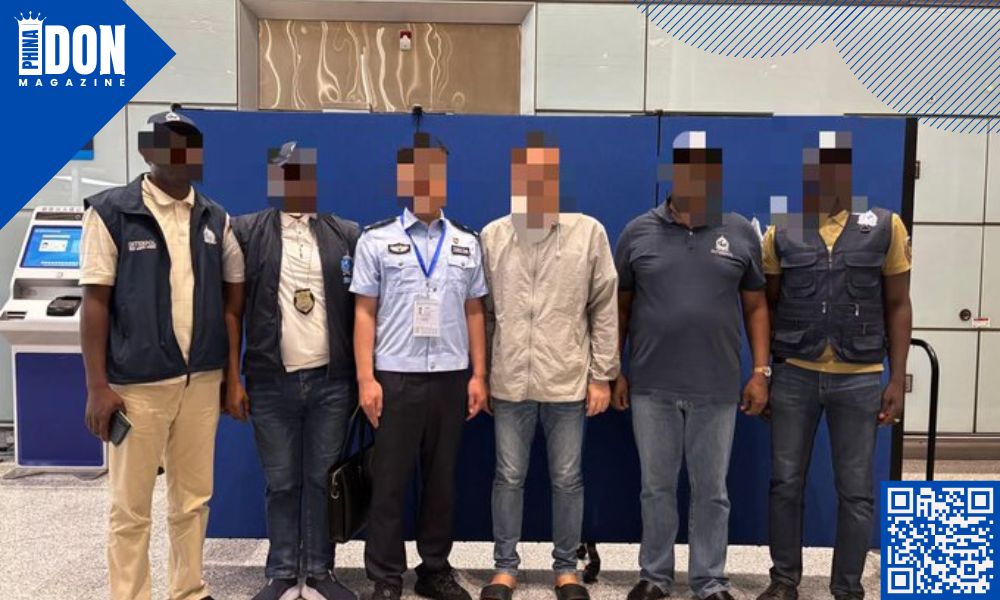
In a coordinated effort between the Nigeria Police Force and Chinese authorities, a Chinese national wanted on charges of tax fraud has been arrested in Lagos and repatriated to China. The suspect, Chen Gaochong, was apprehended on June 24 following an operation led by the INTERPOL National Central Bureau in Abuja, prompted by a formal request from the Chinese government.
Mr. Chen is accused by the Peixian Public Security Bureau in Jiangsu Province of issuing falsified Value Added Tax (VAT) invoices totaling 4.97 million renminbi (approximately N1,057,561,330). He allegedly used the names of Linhai Guangyong and Linhai Beilaisi to generate 45 fake VAT invoices issued to Xuzhou Wanfeng Plastic Industry Company between May and August 2017.
Authorities stated that Mr. Chen fled China in November 2019, moving through Hong Kong and Burkina Faso before unlawfully entering Nigeria in 2021. He reportedly avoided renewing his passport to conceal his identity. An arrest warrant was issued in July 2020.
Mr. Chen was handed over to Chinese law enforcement on July 3. Inspector-General of Police Kayode Egbetokun affirmed that Nigeria will not serve as a refuge for fugitives, emphasizing the significance of international cooperation in combating cross-border crime. The Nigeria Police Force reiterated its commitment to collaborating with international law enforcement agencies and upholding mutual legal assistance obligations.
-

 Foreign4 hours ago
Foreign4 hours agoA person who attacked and killed a Nigerian schoolboy with a sword in the UK has been sentenced to life in prison.
-

 Foreign4 hours ago
Foreign4 hours agoUK Deploys Military Assets to Middle East Amidst Escalating Iran-Israel Conflict.
-

 News4 hours ago
News4 hours agoChinese Tax Fraud Suspect Apprehended in Nigeria, Repatriated to China.

